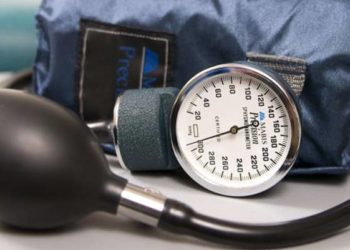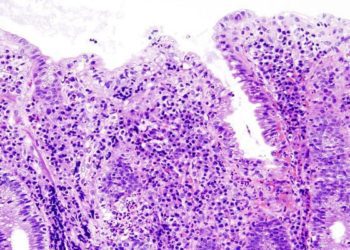Hypertensive urgency outcomes similar between outpatient management and hospital referral
1. In this retrospective cohort study, asymptomatic patients with hypertensive urgency (SBP ³ 180mmHg and/or DBP ³ 110mmHg) diagnosed at outpatient clinics had no difference in major adverse cardiovascular events when managed as outpatient compared with referral for hospital assessment/admission.
2. Six-month follow-up of blood pressure management was not different between those managed as outpatients compared with those referred for hospital assessment, implying that resources may be inappropriately spent in this patient population without significant gain.
Evidence Rating Level: 2 (Good)
Study Rundown: Hypertensive urgency is commonly encountered in the outpatient setting. The optimal setting for management of asymptomatic patients with hypertensive urgency is currently not known. The described article evaluated 58,535 patients who presented with asymptomatic hypertensive urgency (SBP ³ 180mmHg and/or DBP ³ 110mmHg) at outpatient clinics and compared major adverse cardiovascular events (MACEs) for those who were managed as outpatients versus those who were referred to hospital (either as emergency department referral, or direct admission to hospital).
Patients referred to hospital were more likely to have systolic blood pressures above 200 mmHg, have a prior history of hypertension, and have chronic kidney disease. In propensity matched analysis, there were no differences in MACEs up to 6 months of follow-up. Patients sent to hospital were more likely to have controlled hypertension at 1 month but there was no difference at 6 months, where a large proportion of both cohorts had unmanaged hypertension. Referral to hospital was also associated with increased rate of hospital admission, but as stated above, not associated with long-term blood pressure control. The strength of the study was the large cohort size, but the differences between the groups weakened the validity of the results. Also, defining “symptoms” of hypertension was somewhat subjective and not well validated. Lastly, the cohort of patients managed as outpatients were more often lost to follow-up, which may have introduced additional bias.
Click to read the study, published today in JAMA Internal Medicine
In-Depth [retrospective cohort]: This study evaluated health records from the Cleveland Clinic Healthcare system from January 2008 to December 2013 and included 58 535 patients who presented with hypertensive urgency (SBP ³ 180 mmHg or DBP ³ 110 mmHg). Patients were excluded if they had symptoms, end organ damage, or were pregnant. Cohorts examined included those managed as outpatients versus those sent to hospital (either for ED assessment or admission). A total of 426 people were referred to hospital. Major Adverse Cardiovascular Events included acute coronary syndromes, and cerebrovascular events.
Patients sent to hospital were more likely to have SBP >200 mm Hg (51.2% vs. 9.9%, p < 0.001), have a history of hypertension (96.2% vs. 73.0%, p < 0.001), and have chronic kidney disease (16.7% vs. 10.4%, p < 0.01). In the hospital referred cohort 13.6% were lost to follow-up at 6 months compared to 21.6% in the outpatient cohort. In propensity matched analysis, there was no difference in MACEs at 7 days (0% vs 0.5%, p = 0.11), 30 days (0% vs 0.5%, p = 0.11), or 6 months (0.9% vs 0.9%, p > 0.99). Patients managed as outpatients had higher rates of uncontrolled hypertension at 1 month (86.3% vs. 81.9%, p = 0.4), but there was no difference at 6 months (64.6% vs. 66.6%, p = 0.56). Referral to hospital was associated with greater rates of hospital admission (11.3% vs. 6.9%, p = 0.009).
Image: PD
©2016 2 Minute Medicine, Inc. All rights reserved. No works may be reproduced without expressed written consent from 2 Minute Medicine, Inc. Inquire about licensing here. No article should be construed as medical advice and is not intended as such by the authors or by 2 Minute Medicine, Inc.









